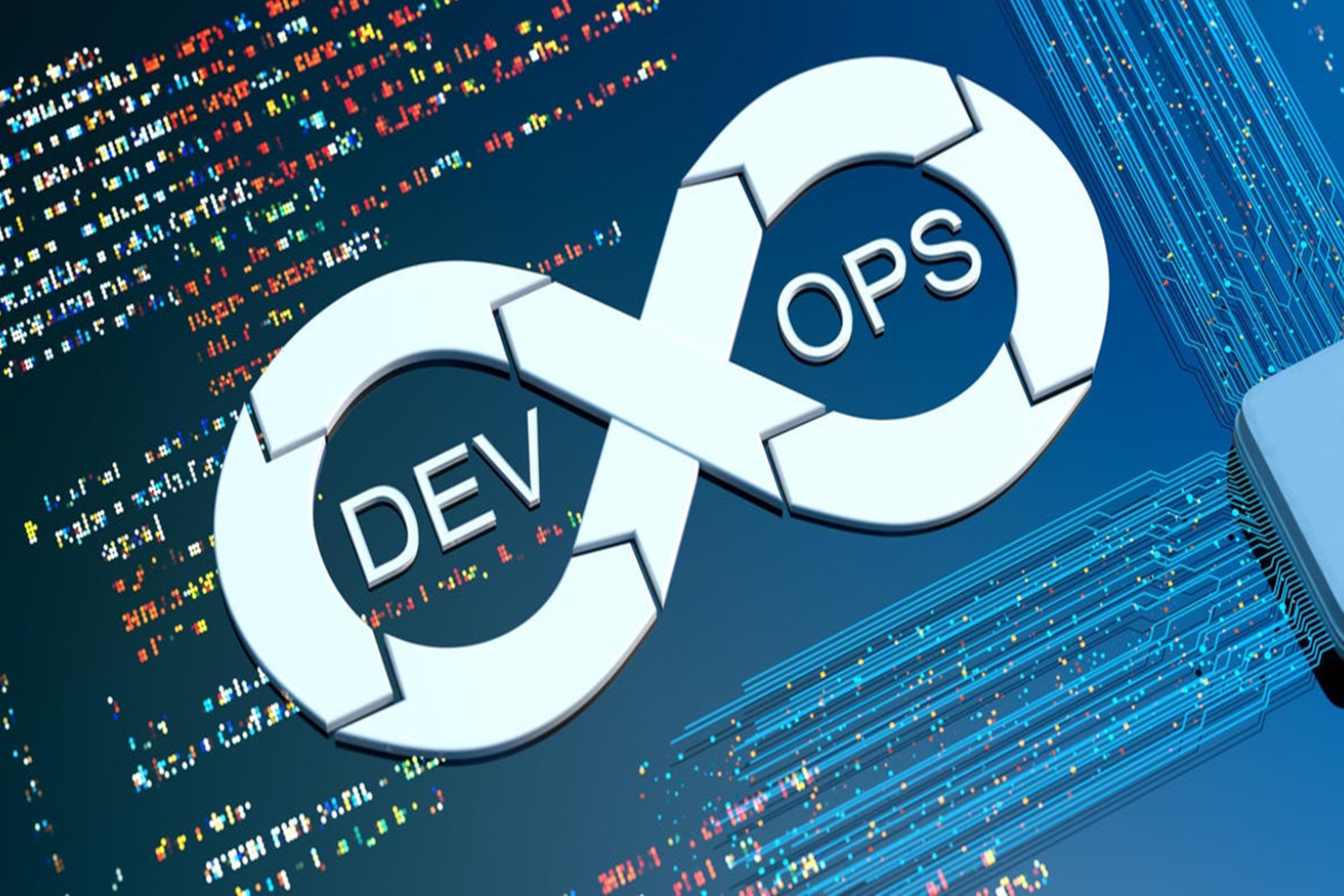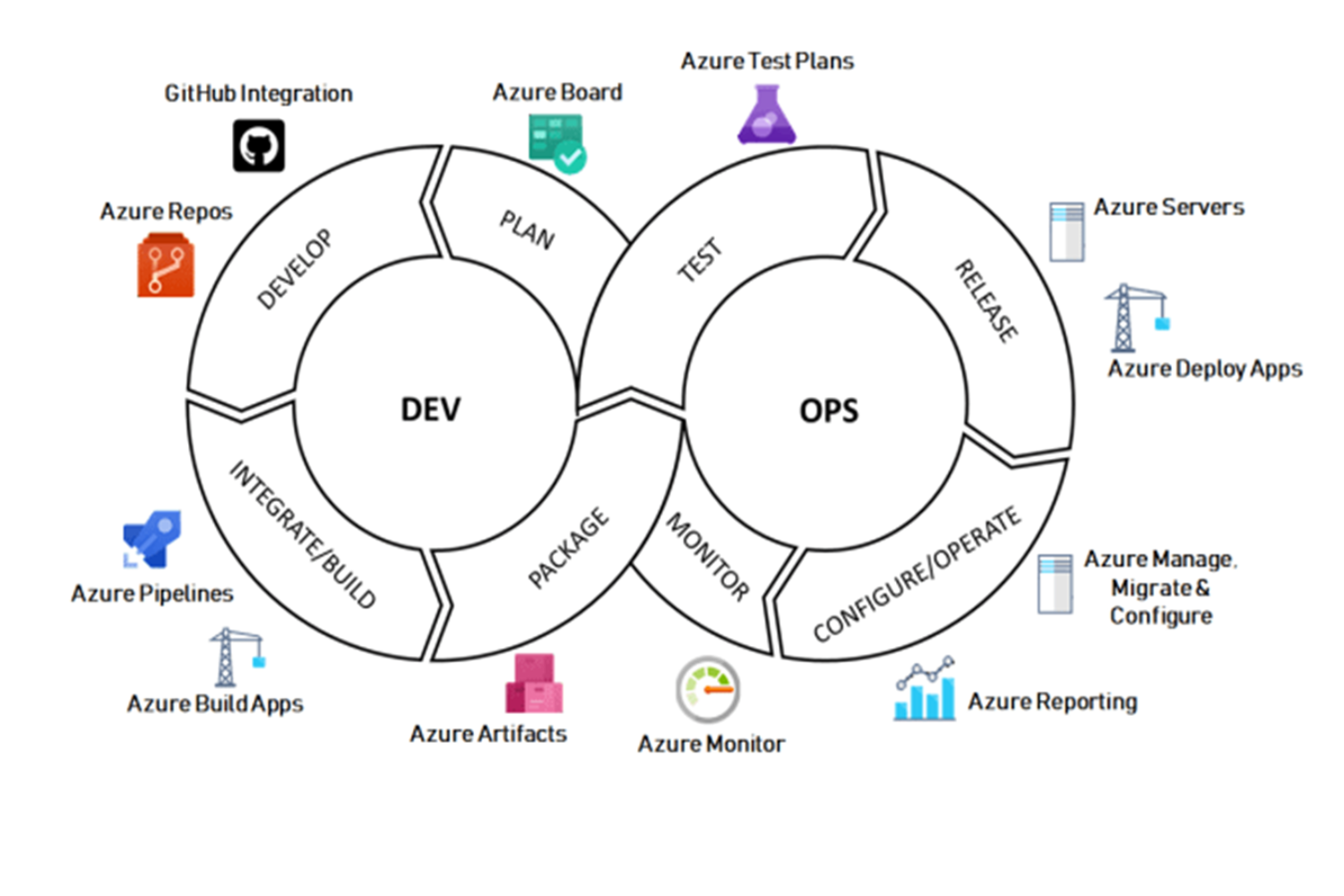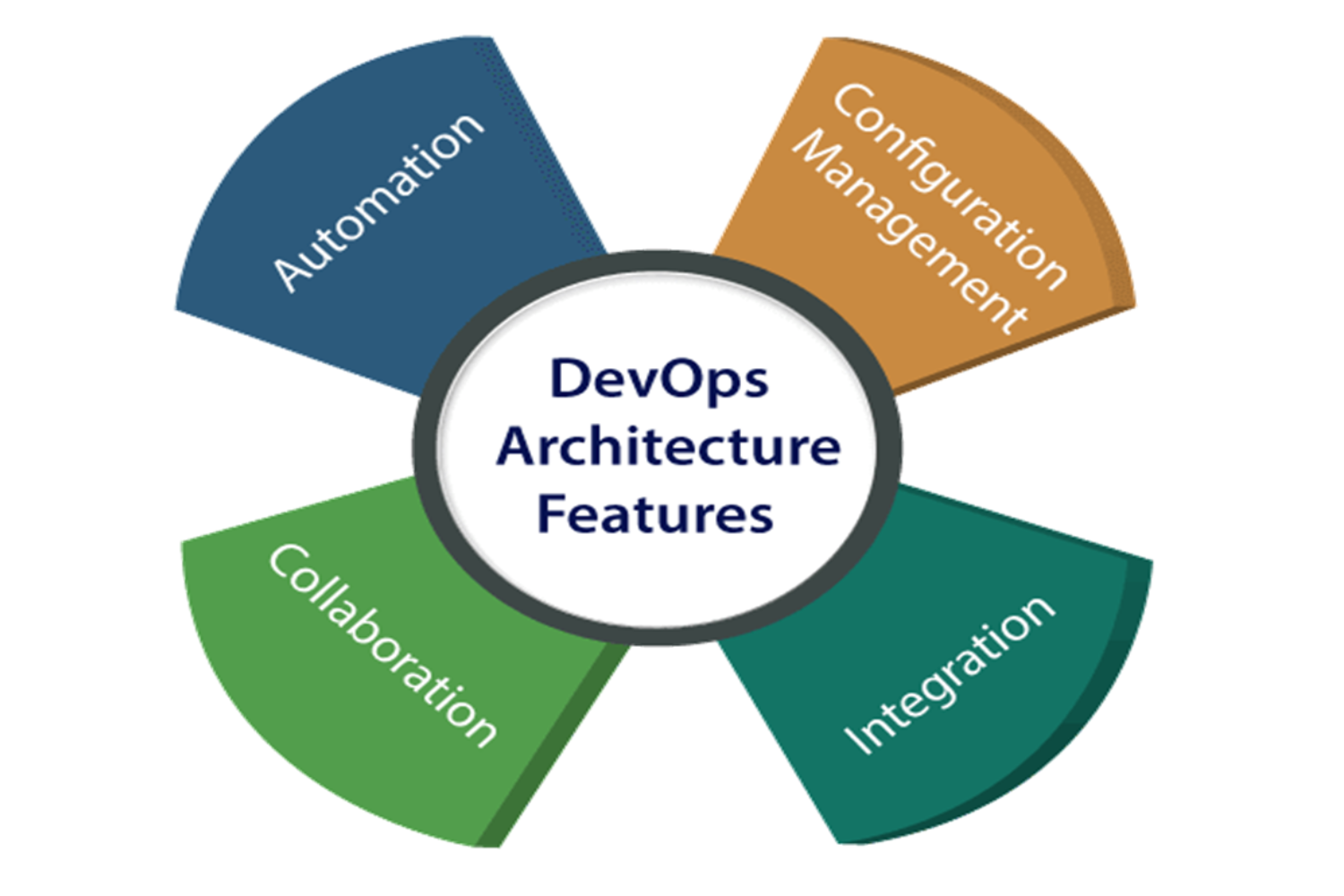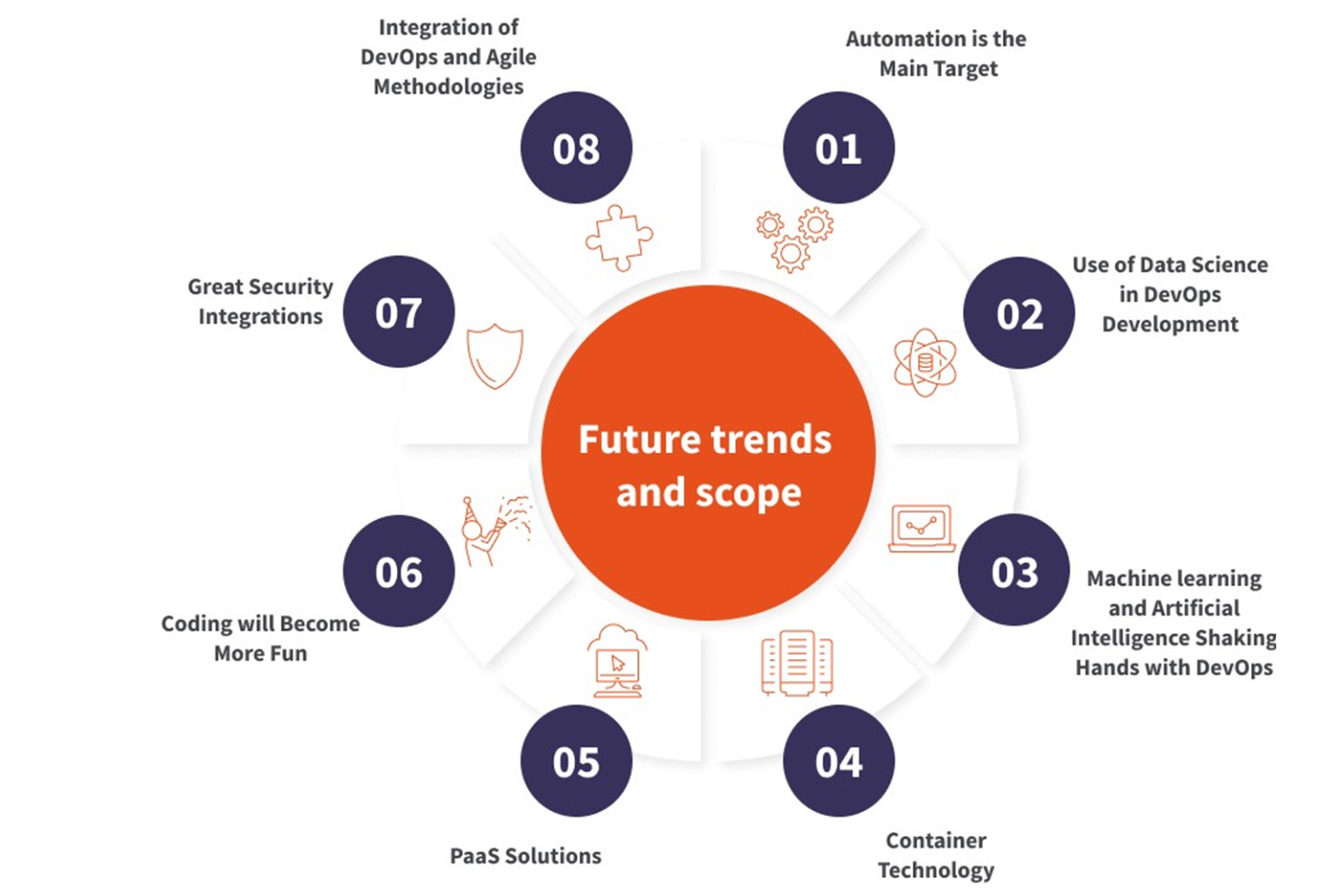
MICROSOFT AZURE DevOps
DevOps in Microsoft Azure cloud computing refers to the practice of combining development (Dev) and operations (Ops) to streamline the software development and deployment process. It involves using Azure DevOps tools and services to automate and manage the entire lifecycle of applications on the Azure cloud platform.


Benefits of Microsoft Azure DevOps
DevOps and cloud are a perfect match. By combining the two, businesses can enjoy even more benefits, such as :
Enhanced Efficiency: Using DevOps and cloud computing has many benefits, but one of the main ones is heightened efficiency. Businesses can expedite their development processes and complete projects faster and with fewer errors by merging the two.
Scalability: Using a DevOps cloud combination allows organisations to scale their operations more easily. This is so that software developers and testers can react swiftly to variations in demand by adding or removing resources as needed.
Improved Quality Control: Quality control can be problematic when a company collaborates with several teams and departments. Using cloud computing and DevOps processes in your development endeavours is the best way to ensure that everything is completed accurately and up to business standards. This contributes to fewer mistakes and higher-quality products.
Faster Time to Market: It’s critical to get goods and services onto the market as soon as possible in the cutthroat business environment of today. Cloud and DevOps can assist you in achieving that. Businesses can accelerate the development of new products and services and bring them to market more quickly than ever before by automating processes and utilising the cloud’s power.
Decreased Costs: DevOps can help businesses save a lot of money, which is one of its main advantages. Errors are less common in development processes that are automated and streamlined. This implies that companies will save money on revisions and rework. Additionally, by letting them pay for just the resources they require, cloud computing can assist companies in sticking to their budgets.
Features of Microsoft Azure DevOps
Automation: Time is saved during the testing and deployment phases with the aid of automation. Productivity rises and releases happen more quickly with automation. This makes it easier to identify bugs early on and fix them quickly. Every code drop for continuous delivery is defined by builds, cloud-based services, and automated tests. Automation is used to deploy the builds in production, minimising human error that can arise from manual deployment.

Collaboration: The development and operations teams work together in DevOps. It enhances the teams’ operational framework and increases their output, which reinforces ownership and accountability. The teams share responsibilities and collaborate closely, which speeds up the deployment to production.
Combination: It is necessary for software applications to be integrated with other environmental elements. In the integration phase, new features and functionality are merged into the existing code and tested. Continuous development is made possible by ongoing testing and integration. How often the releases are to be made presents a big operational challenge. Continuous Integration and Delivery are used to address these issues. Faster, safer, and more dependable delivery are guaranteed.
Management of configurations: Configuration management, with its tools that can automatically manage and monitor updates to the configuration data, aids engineering teams in developing strong and stable systems. Depending on the environment in which it is operating, the configuration file may be written during deployment (for the automated environment) or loaded manually at runtime.

Microsoft Azure DevOps Tools
1) Puppet: It is the most widely used DevOps tool that allows the delivery and release of the technology changes quickly and frequently.
2) Ansible: It is one of the leading open-source IT engine that automates application deployment, cloud provisioning, intra service orchestration, and other IT tools. It enables team to scale automation and speed up productivity.
3) Docker: One of the most widely used DevOps tools, Docker enables the development, deployment, and operation of distributed applications across numerous platforms.
4) Nagios: One of the most effective DevOps tools is Nagios, which uses server, network, infrastructure, and log monitoring systems to identify problems and make them possible to fix.
5) Chef: Scale, speed, and consistency can be achieved with a cloud-based tool called Chef.
6) Jenkins: One of the crucial pieces of software that enables continuous integration is Jenkins. On the server where the application build is scheduled, it is installed.
7) Git: Git is a distributed version control system that is open-source and widely used. Given that everyone has free access to it, it is extremely common. It has the speed and efficiency to manage small to large projects.
8) Splunk: One popular monitoring tool that makes machine data valuable, useable, and accessible to all is Splunk. It provides DevOps teams with operational intelligence.
9) Selenium: Selenium is a well-liked web application software testing framework that offers an easy-to-use interface for creating automated tests.
Scope of Microsoft Azure DevOps
In the future, we can expect to see even more integration between DevOps and cloud computing. This includes further integration of DevOps methodologies, increased use of containerization and serverless technologies, enhanced security and compliance measures, and the adoption of artificial intelligence and machine learning for intelligent automation and predictive analytics. Additionally, there will be a focus on optimizing cost management and resource utilization in cloud environments. DevOps will continue to evolve and adapt to meet the changing needs of cloud computing.

Job Roles
DevOps Engineer
Cloud Engineer
Site Reliability Engineer (SRE)
Cloud Architect
Automation Engineer
Continuous Integration/Continuous Deployment (CI/CD) Specialist.
Salary Expected
The DevOps candidates from SCODEEN Global in India have received packages ranging between 13 lakhs to 35 lakh Per Annum.
Course Highlights
1- Suited for students, fresher’s, professionals, and corporate employees
2- Live online classes
3- 4-month program
4- Certificate of completion
5- Decision Oriented Program of Analysis
6- Live Classes by highly experienced faculties
7- Hands-on experience with real-life case studies

Conclusion
In conclusion, DevOps in cloud computing, such as Microsoft Azure, combines development and operations to streamline software development and deployment processes. It offers benefits like faster releases, improved collaboration, automation, scalability, and enhanced monitoring. Key features include CI/CD pipelines, infrastructure as code, monitoring tools, and collaboration platforms. DevOps in cloud computing continues to evolve to meet the changing needs of organizations.

